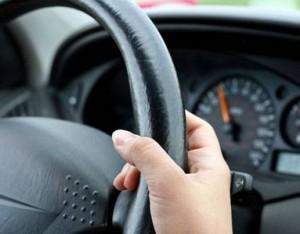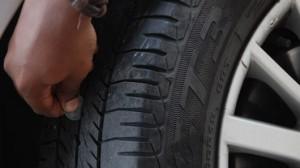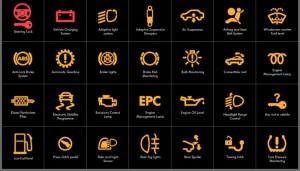Car is one of the luxury properties for many people. Because of this reason, a regular General Car Service Schedule can help keep your vehicle running at its best.
Car From Japan developed a General schedule to help you keep track of regular maintenance.
Most of the checks and services described here can be done at little or no cost. Moreover, they are quick and easy to do for everyone!
Contents
Car Service Maintenance Schedule To Follow
Not only vehicles but any mechanical structure will wear out over time. Maintenance aims to fix this wear and tear so that the car’s systems can work in their best condition.
Regularly maintaining your car on time will help the car limit damage, operate stably, increase longevity, and meet safety and environmental regulations.
Usually, car maintenance schedules will be calculated based on the mileage. What is the best car maintenance schedule? Let’s find out more clearly through this part:
First general car service after 5000 km

Each automaker will have different maintenance schedules but these should be detailed in the vehicle handbook.
However, the first maintenance period will range from 3,000km to 5,000km, equivalent to 3 – 6 months of using the car from the time the car is first driven.
In this phase, you should change the engine oil, and clean the air filter and air conditioner filter. Normally you do not need to change engine oil every 5000 km unless the vehicle frequently operates in harsh conditions.
But after the first 5000 km, you should change the oil because it may contain metal debris. After that, you can change it every 10,000 km.
In addition, to be more careful, you should ask technicians to check the level of brake fluid, transmission oil, coolant, glass washer fluid, etc., and add more if there is a shortage.

Second general car service after 15000 km
At this time, you should replace the fuel filter of your vehicle. The fuel filter is responsible for keeping dirt, debris, and contaminants from clogging your fuel lines and causing erratic, unstable fuel performance and reduced fuel economy.
Because of that importance, Car From Japan advises you to change the fuel filter every 10000 km.
Besides oil change and fuel filter change, after 15000 km, you should also rotate tires to help your vehicle run well.

Third general car service after 30000 km

Normally, after 30000 km, the air filter and cabin filter will be dirty and force your engine to work harder, resulting in poor fuel economy, higher emissions, and possibly a loss of engine power.
Therefore, you should replace new filters at this point in time to keep the air that you breathe inside the cabin clean and improve engine performance.
Fourth general car service after 40000 km
After each 40000 km, it is time to check and change engine oil, transmission fluid, power steering fluid, differential fluid, timing belt, brake fluid, coolant.
Changing transmission fluid and differential fluid frequently will make transmission and differential run smoothly.

Fifth general car service after 100000 km

We really should keep checking the coolant and replace the new coolant after 100000 km to ensure the cooling system works well and the engine will never overheat. Also, you should check and replace spark plugs, brake pads, etc.
Frequently check parts every time you do maintenance
In addition to the car service maintenance checklist above, there are also parts and systems on the vehicle that you need to check regularly or every time you use the vehicle to ensure the vehicle is always in the best condition.
Parts that need to be checked regularly include:
Breaking system
You can check the brake system periodically every 10,000 km or 6 months. The brake system must work at high frequency in harsh conditions due to high friction force. Therefore, it is necessary to check regularly.
Brake inspection components include checking brake pads, brake cylinders, brake booster, brake pedal, and ABS.

Steering system
If your vehicle has an electric power steering system, we must also ensure that it is maintained as well as other engine systems. Typically, power steering systems are operated hydraulically.
Therefore, at around 50,000 km or a certain maintenance period, you should clean and change the fluid if necessary to increase the life and safety of your car.

Vehicle suspension system
The suspension system is an important part that contributes to the smooth movement of your car.
During the operation of the vehicle, the suspension system that operates for a long time will often cause damage due to its location in a hidden place (the bottom of your car).
A faulty suspension system, if left unfixed for a long time, will likely cause serious damage to other systems. It could range from the performance quality and aesthetics of the car but also reduces your experience when driving a car.
Therefore, periodically checking and maintaining the car’s suspension system to replace it early when detecting unusual phenomena is essential.

Lighting system
Lighting system including indicators, reversing lights, brake lights, and fog lights.

Tires
Drivers should refer to some experiences in properly maintaining car tires to achieve the highest efficiency, prolong tire life and ensure safety for users like checking tire pressures and condition of tires ( including the spare tire).

Checking car dashboard warning lights
Make sure that after you start the engine, all the warning lights are activated and turn off after a few seconds.
It means that when turning on the engine switch, all indicator lights must light up, then after 30-60 seconds, the lights will turn off slowly depending on the system lights and when you start the engine, all these warning lights must turn off.
If any system’s indicator light is still on, it means that the system on your vehicle has a problem.





Good idea
Thank you for your comment. If you think this article is useful, please share it to your friends.
Thank you. am skilled in my car general service.
Thank you for the article,pliz share with me all the lights on a dashboard and their meaning for a toyota corolla model 2001